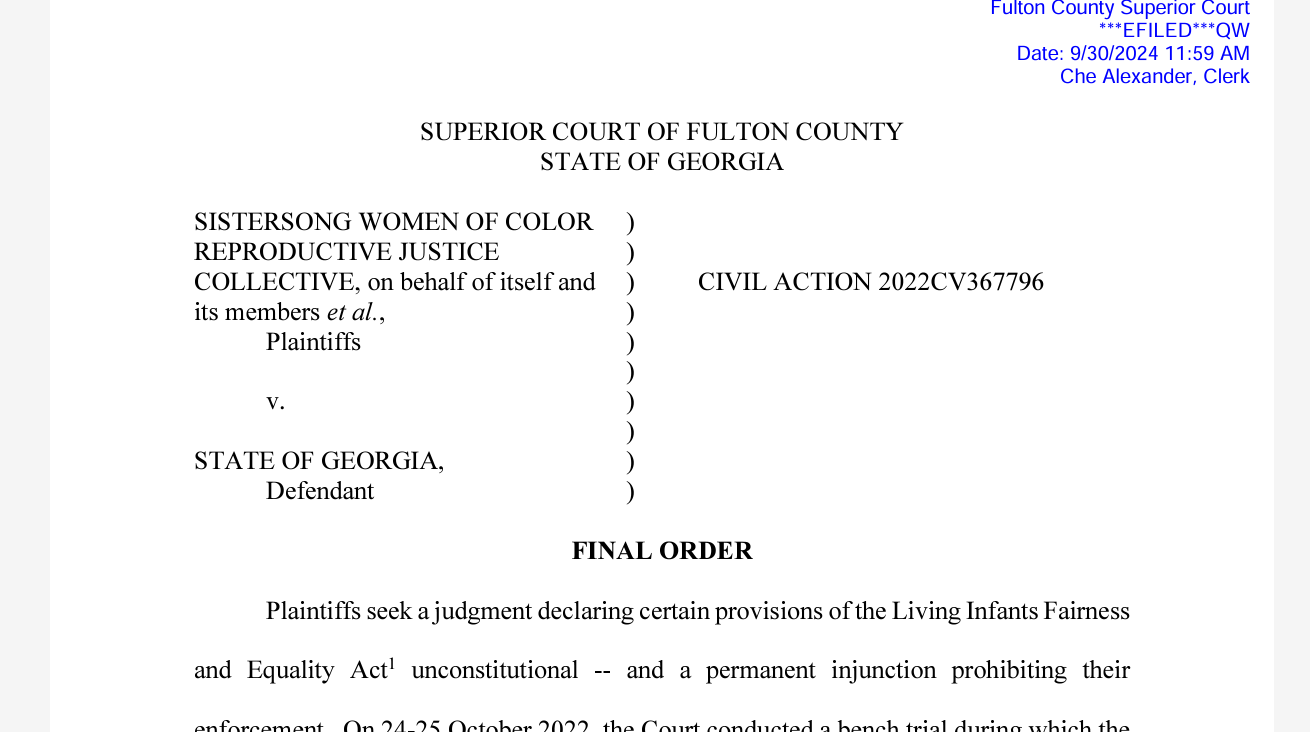Georgia judge issues order against abortion law
Case will likely head up to state supreme court as the six-week ban's constitutionality remains in question
A Georgia Superior Court Judge issued a standing order preventing the enforcement of its abortion ban because he believes that it violates a woman’s right to privacy and liberty.
Fulton County Superior Court Judge Robert McBurney issued the order on Monday to stop Georgia’s Living Infants Fairness and Equality Act, or LIFE Act, which bans abortions past six weeks. The decision came after the state had been in the news recently after ProPublica reported that two women had died as a result of not being able to obtain medically necessary abortions following the law’s enactment.
“Whether one couches it as liberty or privacy (or even equal protection), this dispute is fundamentally about the extent of a woman’s right to control what happens to and within her body. The baseline rule is clear: a legally competent person has absolute authority over her body and should brook no governmental interference in what she does -- and does not do -- in terms of health, hygiene, and the like.”
Generally speaking, there were some lambasting terms and allusions to works like The Handmaid’s Tale, a dystopian novel about a society where women are valued only for their ability to bear children and forced into subservient positions. It was also turned into a critically acclaimed TV series. Most of my readers are familiar with the story so I won’t go into it any further, but it’s as timeless as The Stepford Wives.
Despite some rhetorical flair, McBurney’s order could fairly be characterized as moderate in its analysis. He wrote that at some point, the pregnancy acquires rights and deserves protections that can conflict with the mother’s exercise of her rights. The judge held that the previous law, which had held that the state could act to preserve a fetal life after viability, had been constitutional. As Judge McBurney said, that struck a “proper balance.” As McBurney wrote:
We struggle mightily -- and not always peaceably -- with determining when that point arrives. For some, that moment is conception: when sperm fertilizes egg and a zygote is formed -- a single cell with a unique combination of DNA drawn from each parent -- a new life begins, a life vested with all the protections our Constitution affords living human beings.”
McBurney said the law was unconstitutional because it violated the state’s liberty and privacy guarantees. He also pointed out that it wasn’t narrow enough.
“There is nothing narrow about a law so blunt that it forces a woman to allow a fetus grow inside her for months after she has made the difficult and deeply personal decision not to bring the pregnancy to term. Indeed, as the trial testimony made clear, the Act’s prohibitions against certain healthcare choices take effect before most women even know they are pregnant and so before they can begin to contemplate whether having a child is safe and sustainable for the mother and, if relevant, for her family. While the State’s interest in protecting “unborn” life is compelling, until that life can be sustained by the State -- and not solely by the woman compelled by the Act to do the State’s work -- the balance of rights favors the woman.”
The entire order is below.


